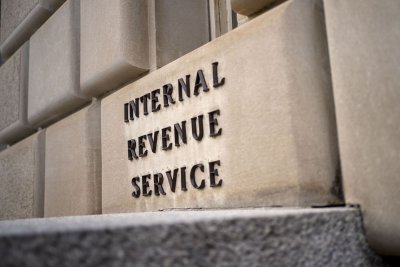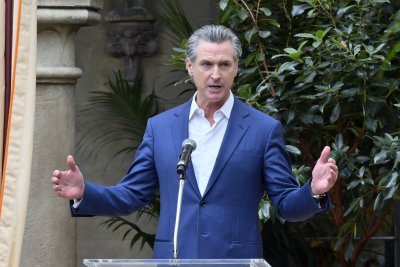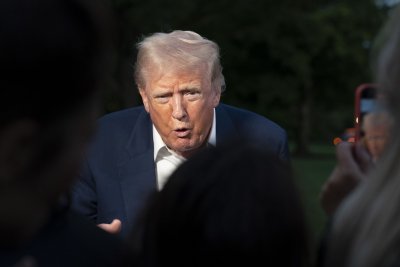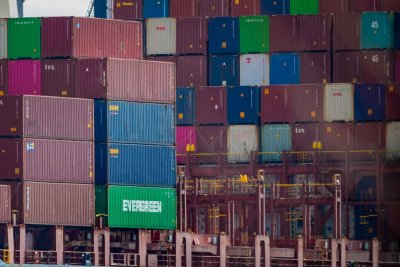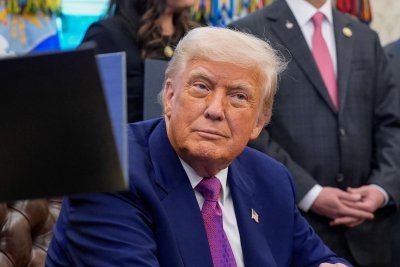May 12 (UPI) — President Donald Trump‘s announcement that he wishes to place tariffs on internationally-produced films has people in the movie business worrying of another hurdle.
Trump announced his intention to implement 100% tariffs on foreign films on May 4 after meeting with actor Jon Voight. Trump has not shared details about how his tariff plan would work. Daniel Loria, senior vice president of The BoxOffice Company, told UPI the first and most difficult task will be defining what a foreign-made film is.
“Is a movie written in the U.S. for a U.S. studio, funded by a U.S. production company set in a foreign country that then comes back and does all the effects and post-production work and marketing here — because the story elements include a foreign angle, does that count as a foreign-made film?” Loria said.
“Ultimately determining what is and isn’t foreign produced, which is a difficult task to enact in a globalized economy and industry, is going to be essential to how film studios tackle this proposed era that is coming up.”
Unlike an automotive manufacturer that imports tangible products into the United States, filmmaking is far more speculative. Films are less a good or product and more an experience, Loria said.
“You’re buying the experience,” he said. “Putting a tariff on movies would be very difficult to trickle down to the moviegoer. You have to think about movie-going as a service, not a good.”
The United States has not placed tariffs on films before. American films are not subject to tariffs in other countries when they hit their theaters either. Physical media such as DVDs and Blu-rays are subject to tariffs in some cases. Other countries, such as China, may require American films to be altered to meet content guidelines.
Hollywood is recognized as the epicenter of the film world but it has increasingly become a global industry. The highest-grossing film in the world this year is the Chinese animated film Ne Zha 2. As of Friday, it has earned more than double that of the second-place film, A Minecraft Movie, reaching $1.8 billion in the worldwide box office, according to Box Office Mojo.
Box office data combines the United States and Canada’s earnings — referred to as the domestic box office — in comparison to the worldwide box office. According to Loria’s data, the domestic box office represented 21% of global sales in 2021, 29% in 2022, 27% in 2023 and about 30% in 2024.
Loria noted that while box office earnings and publicly known production costs are often cited to gauge the success of a film, it is difficult to determine which films are profitable or how profitable the business is as a whole.
“A lot of Hollywood accountants would tell you no films make money,” Loria said.
Box office numbers suggest that the industry is still recovering from the COVID-19 pandemic. The pandemic halted productions around the world and closed theaters in the United States for more than a year. This came after a record year at the box office in 2019.
Shannon Cole is the executive director of the Vermillion Cultural Association based in Vermillion, S.D. The nonprofit organization leads art programming for the city and owns and operates the Coyote Twin Theater. It is the only theater within a 25-mile radius of the town and plays many of the biggest new releases.
Cole told UPI that the announcement of film tariffs combined with other Trump administration policies — specifically cuts to the National Endowment for the Arts and National Endowment for the Humanities — has her, other local arts leaders and local artists worried about how long they can continue doing their work.
“It means we’re looking at at least three more years of what’s already been a four-year downturn in the film industry,” Cole said. “Everyone is out of the habit of going to the movies. Now, you’re saying potentially movies could end up costing more because studios will charge theaters more to show movies?”
According to Cole, the Coyote Twin Theater’s audience was down by 40% from 2023 to 2024. The theater pays as much as 68% of ticket prices back to the studios for showing their movies, and for-profit theaters may pay more.
“2019 by far was the high watermark of the movie industry worldwide,” Cole said. “It was the best year on record for us. Everybody wants to get back to that.”
Jason Squire, professor emeritus at the University of Southern California School of Cinematic Arts and host of The Movie Business Podcast, told UPI that the business is largely far different than the perception of glitz and glamour that is often attached to it.
“It’s a gig economy,” Squire said. “It’s people who are, in general, highly accomplished craftspeople in very specialized crafts. Many of whom are struggling because of runaway production. Because of issues of crisis within the business and the transformation that’s going on.”
Part of that transformation is the decentralization of the industry. States like Georgia, New Jersey, New Mexico and Louisiana are drawing production away from California with enticing incentives. Production incentives are not unique to the United States though.
Toronto has been growing its film production market since the 1970s, spurred on by the Ontario Film and Television Tax Credit. This 35% refundable tax credit is offered to productions that meet several criteria, including spending at least 75% of their final costs in Ontario.
India and China have surpassed the United States in terms of the number of films they produce. India offers cash rebates for qualifying production expenses.
In response to Trump’s tariff announcement, California Gov. Gavin Newsom proposed a new $7.5 billion federal film tax credit to help bring productions back to California.
“California built the film industry — and we’re ready to bring even more jobs home,” Newsom wrote on X. “We’ve proven what strong state incentives can do. Now it’s time for a real federal partnership to Make America Film Again.”
Voight, one of three advisers to Trump on Hollywood, has also drawn up a “Make Hollywood Great Again” plan that proposes incentives for domestic film production, according to Deadline. His proposals are laden with several incentives for a majority of physical production to be done in the United States.
Voight also proposed a 120% tariff if a film “could have been produced in the U.S.” but was produced elsewhere and receives a production tax incentive.
“The idea of placing a tariff on overseas tax incentives or government subsidies or rebates would be onerous,” Squire said. “It would throw a wrench in the works of the business model and make it more expensive, which is the last thing you want. The key to producing movies is to make them at a price you believe the public will bear and make a little more than you spent in order to keep making movies.”
Cinema United, formerly the National Association of Theatre Owners, released a statement on Thursday in response to the Trump administration’s interest in reforming the film industry.
“It is important to recognize that theatrical exhibition is not a Hollywood industry, but a Main Street industry, and proposals that support and promote the hard work being done by theatre owners will have a positive and meaningful impact in communities across this nation,” Michael O’Leary, president and CEO of Cinema United, said in a statement.
“We are committed to working with the administration, Congress and all interested parties who recognize and share the goal of ensuring that our local theatres retain both their economic and cultural significance and we thank them for their leadership.”




